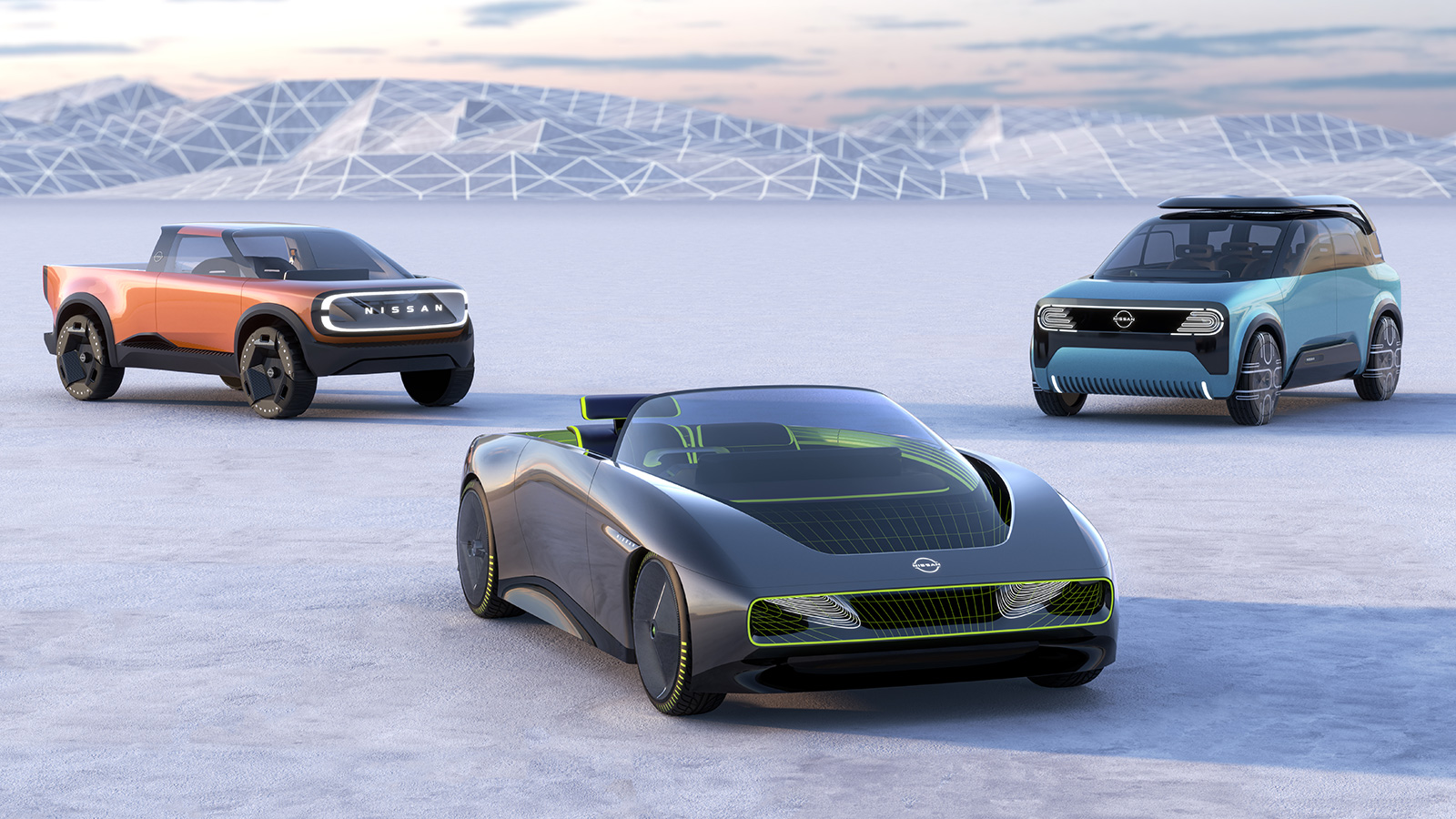Nissan's Latest Concepts Are Its Most Inspiring In Ages
Finally removed from its growth-obsessed doldrums, Nissan is finding ways to be fun once again.
With the Ariya nearing launch in Japan and the anticipation behind the new Z, Nissan finally has reasons to be excited about the future again. The automaker's plans don't stop there, however, as it shared Monday morning that it plans to invest $18 billion in EV and solid-state battery development over the next five years, with an eye towards offering 15 battery-electric models by 2030. At that point, the company projects that half the vehicles it sells globally will be electrified in some capacity.
The thing is, everyone's making similar projections about going all, mostly- or half-electric by the end of the decade. If you really want to drum up excitement, you've got to channel that enthusiasm into an attractive concept. Or four, as Nissan's just done.
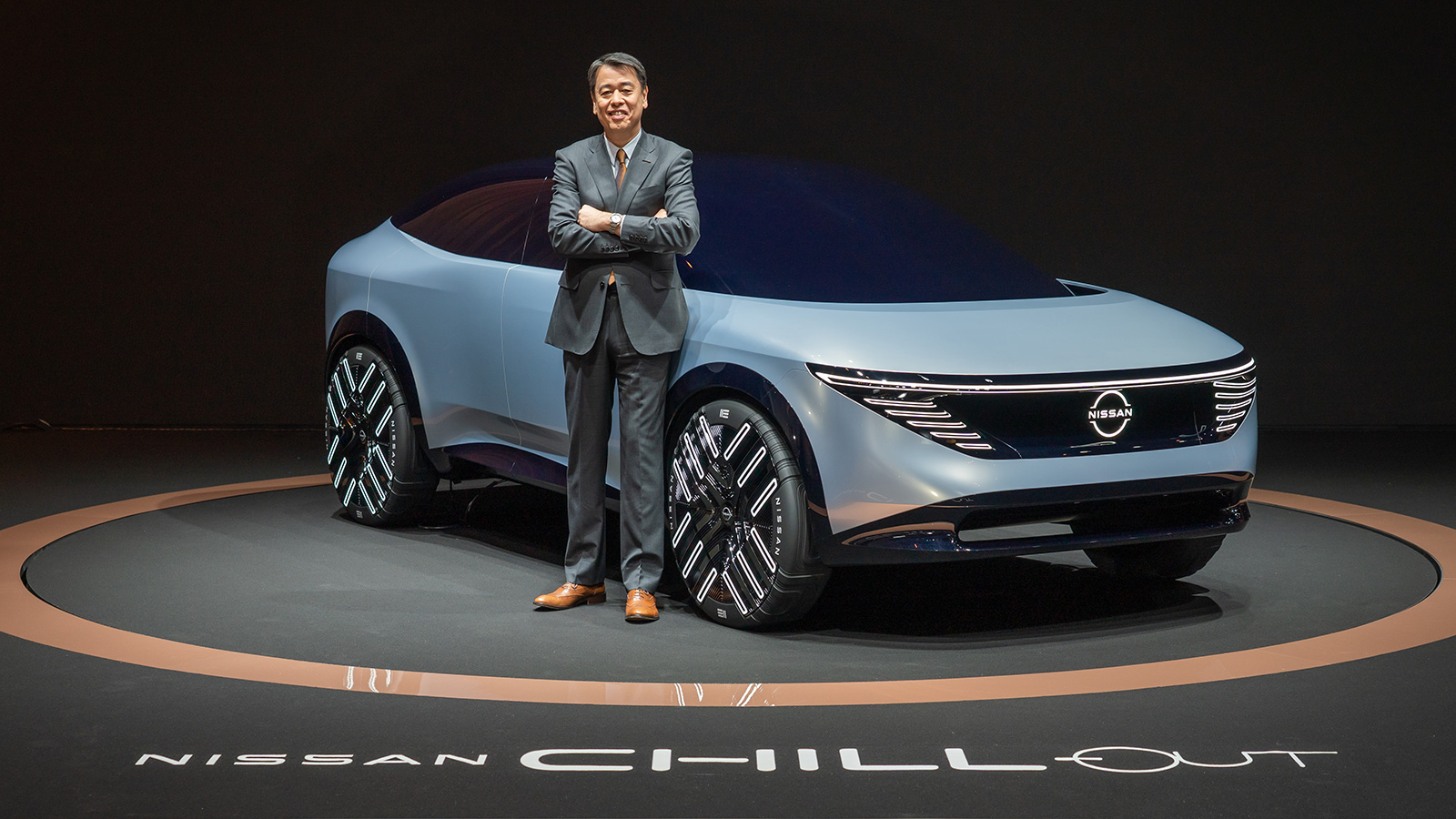
The only one of the group that seemingly exists in the flesh at the present is the Chill-Out, which pretty much resembles a smaller, sportier Ariya. It looks fine enough but doesn't take many chances, with the only unique cue of note pertaining to the taillights. It almost looks like Nissan's designers copy-pasted the Z's pill-shaped LEDs several times over, but those graphics don't really tie in neatly to the light bar encircling them, nor the glossy black portion they're set within. It's neat, but busy.
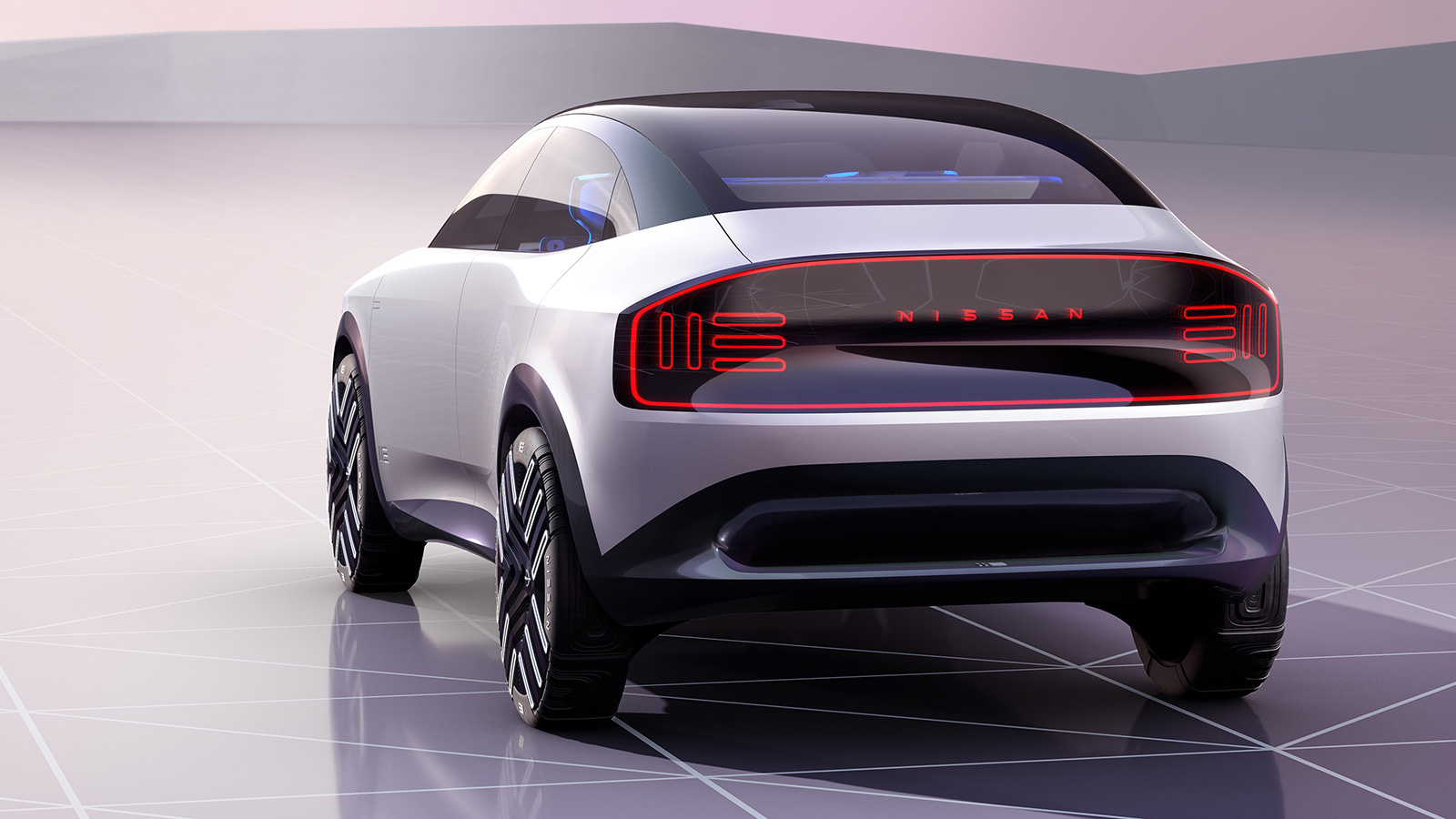
Turning our attention to the three other proposals, we begin to see some real creativity at work. There's the Max-Out, a two-seater convertible that vaguely reminds me of a miniaturized, slightly chunkier McLaren Speedtail with its tapered teardrop profile. The Max-Out isn't an obvious tribute to classic Nissans in the way that, say, the IDx was, but it hits the same pocket of nostalgia in my brain.
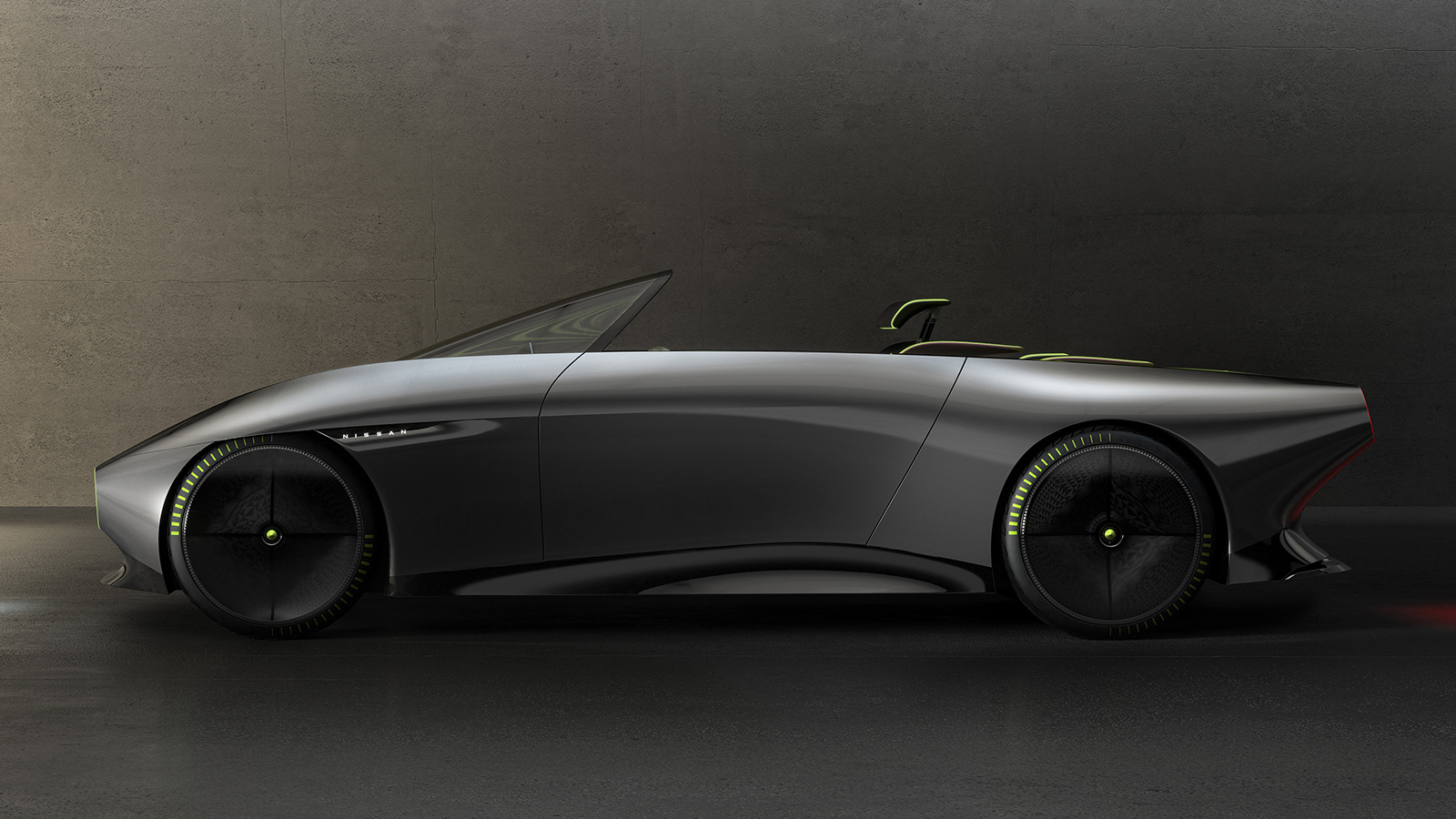
It also establishes a very cool theme of this series of concepts: the creative use of translucent surfaces and apertures to repurpose the conventional automotive grille into a window. The Max-Out achieves that by dipping the leading portion of the windshield that meets the body down past the rising profile of the hood, creating a rectangular hole where the headlights — if those are indeed headlights — shine through. The grid pattern on the inside of that surface gives that region depth and body. That's a really clever touch, because if it were merely painted stark black, it'd simply look like wasted, empty space.
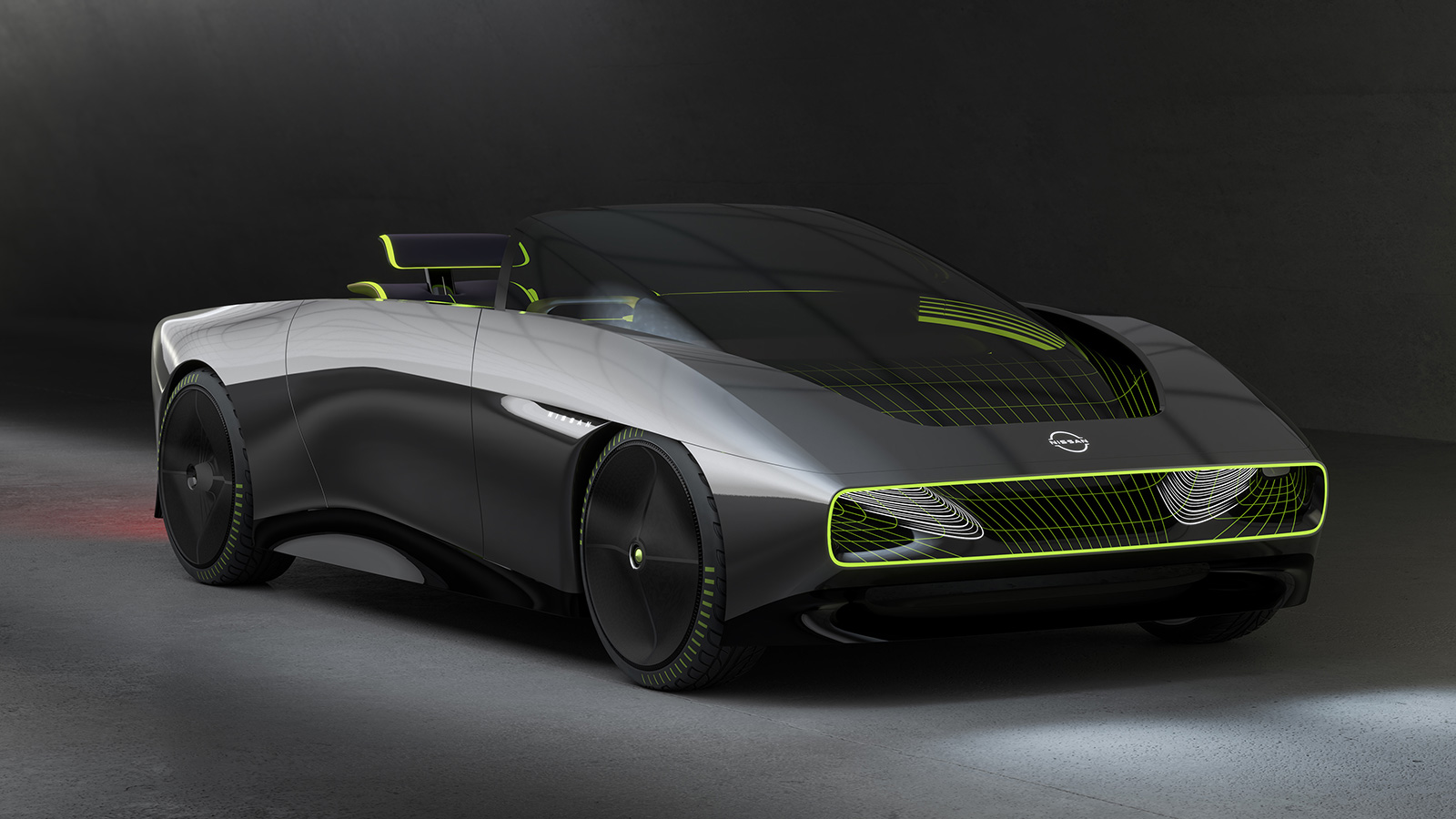
We see a similar trick used for the Surf-Out pickup, although here the hole is actually covered with glass, and allows you to peer right through to the cabin.
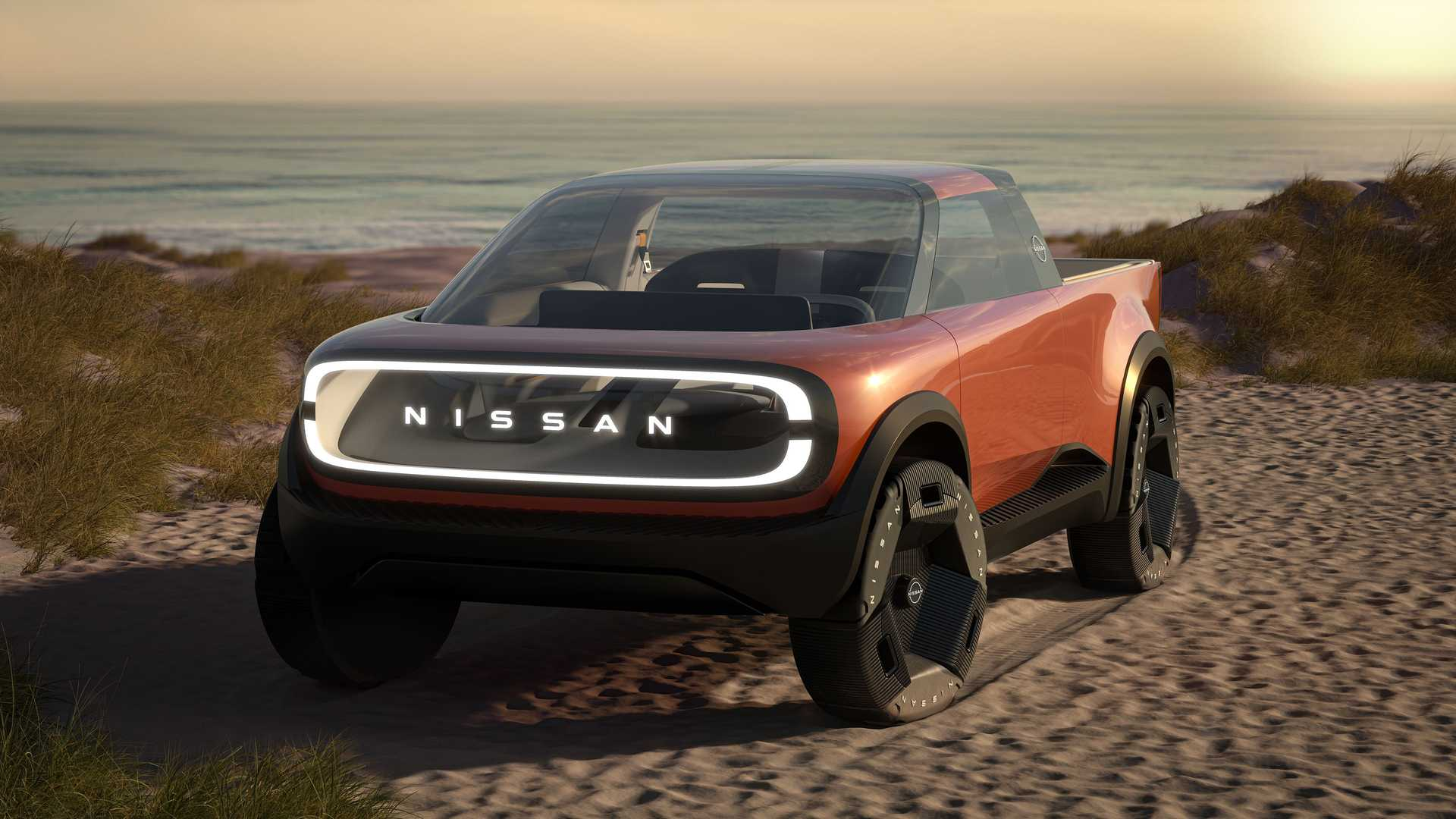
If you were actually buying one of the vehicles, would that space be better served for frunk storage? Yeah, probably. But it's nice to see artists actively using the opportunities afforded by EVs to push car design into places it physically couldn't have gone before, as opposed to repeatedly penning ICE-powered crossovers with more blue accents. Obviously whatever production cars that ultimately spawn out of this exercise won't look anywhere near as daring as what we're seeing here, but that's ok. These ideas show that Nissan's thinking the right way.
Moving back to the Surf-Out, I like the optional bed cover that transforms the truck into some kind of baja raid vehicle and completes the light bar, which is just a wide "U" shape without the cap in place. Also, I'm a fan of the AOL-era emoticons greeting overzealous tailgaters.
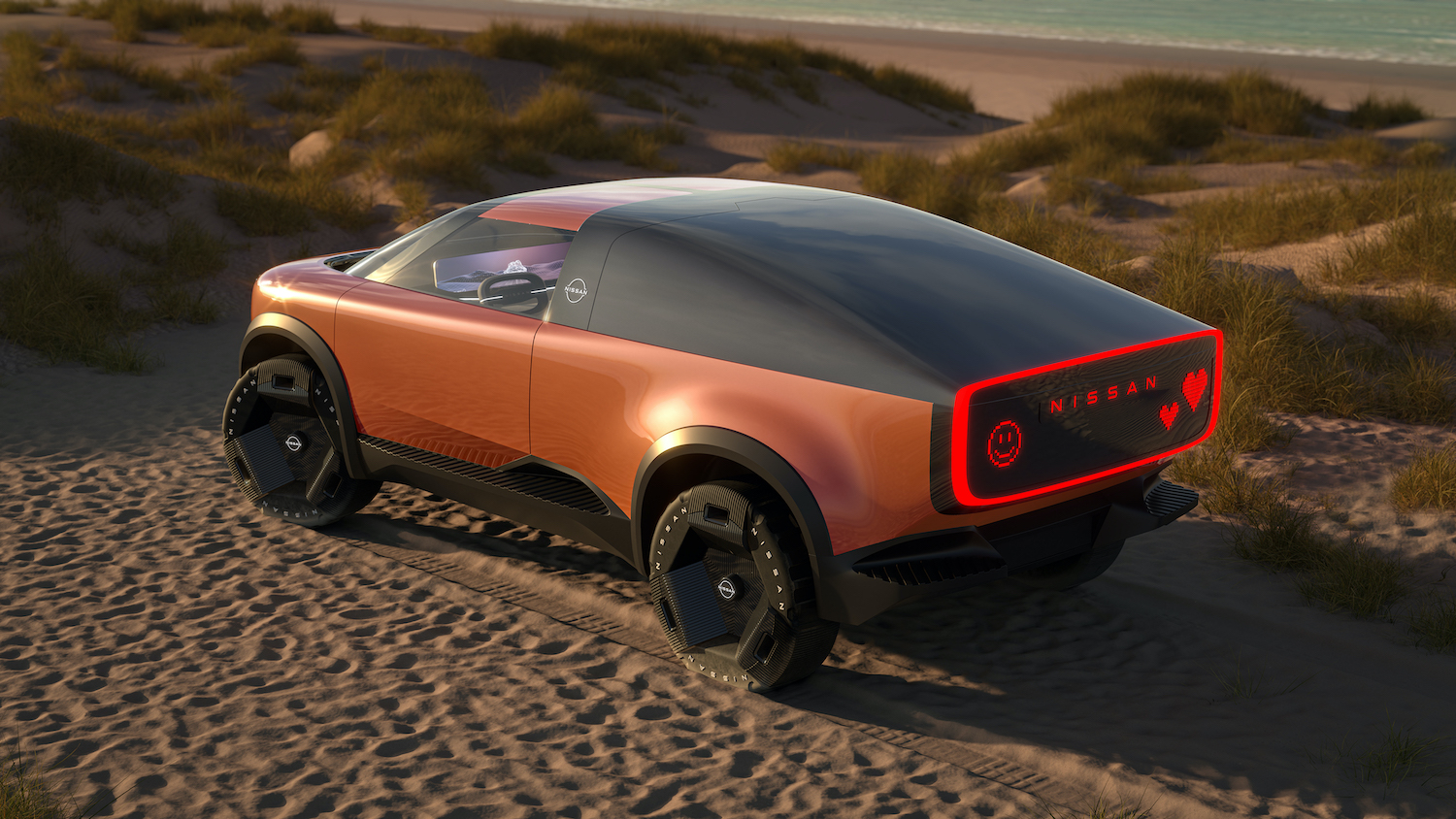
Finally, we come to the Hang-Out — Nissan's take on the two-box city car, like a Cube with seemingly more utility. Like some other concepts of this ilk that we've seen over the years, the Hang-Out is really all about the interior, with the four seats inside the cabin placed on a track so they may slide and swivel. The doors part horizontally, creating an airy atmosphere in what is an otherwise modest space. I'm not exactly sure what that structure on the top does, though in one of these renderings, it appears to help support a canopy; in another video, it projects a light show over the moonroof. If Nissan were to ever resurrect the Cube as an EV, this is how the company should go about it.
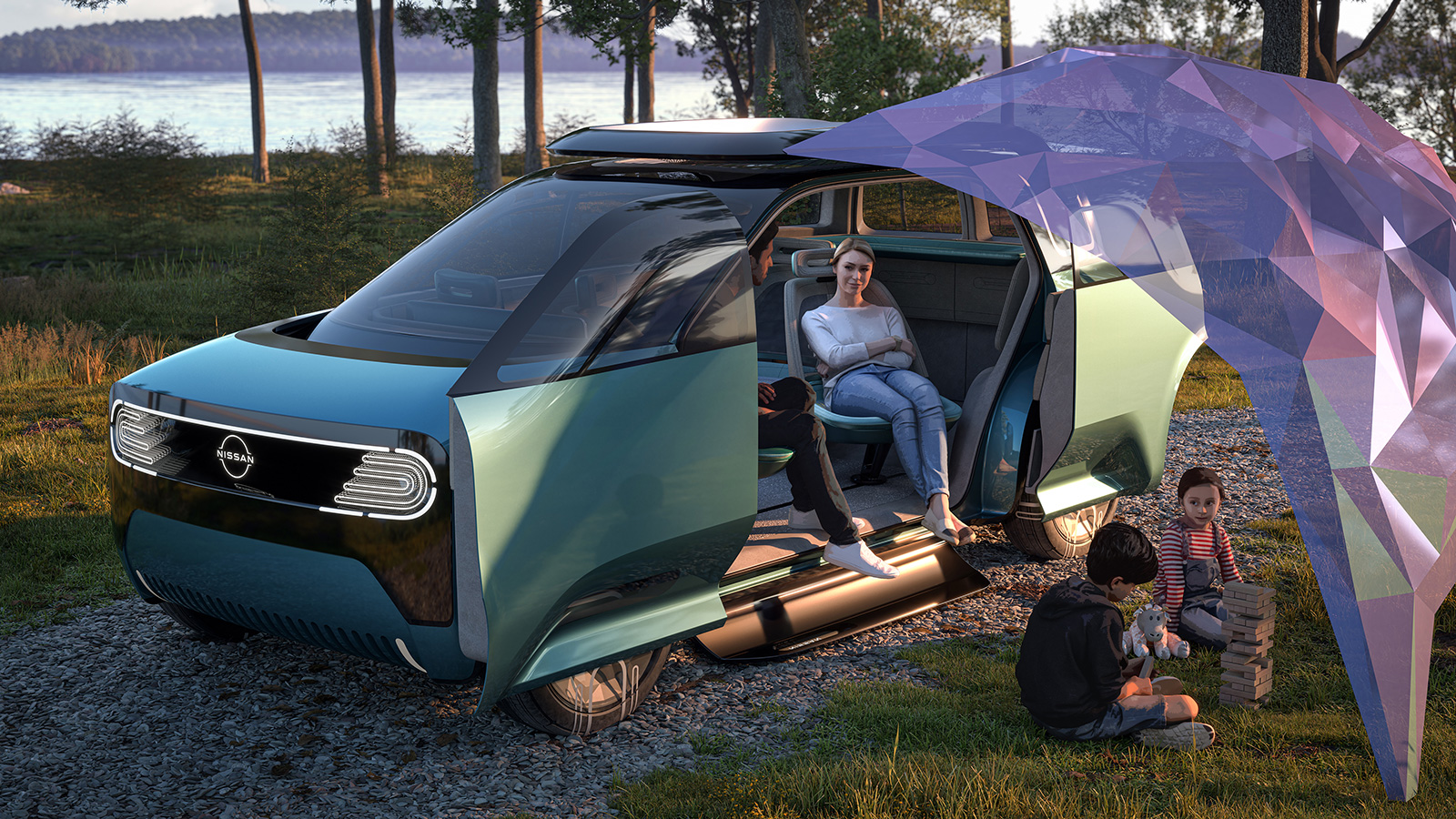
The most feasible of all these visions is likely the Chill-Out. It's a crossover after all, and a fairly believable one at that; plus, Nissan's said that the Leaf's eventual replacement will move away from the hatchback motif. That's all well and good, but I'm personally looking forward to years from now when Nissan and other automakers finally have the mass-market family movers sorted, and can start moving some of these weird, quirky, fringe ideas off the drawing board.
